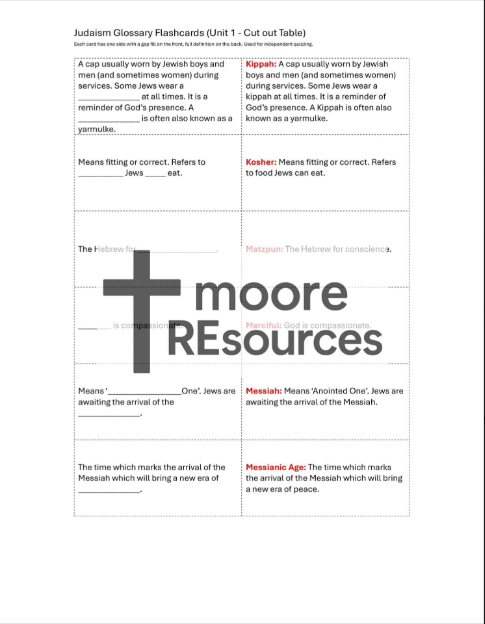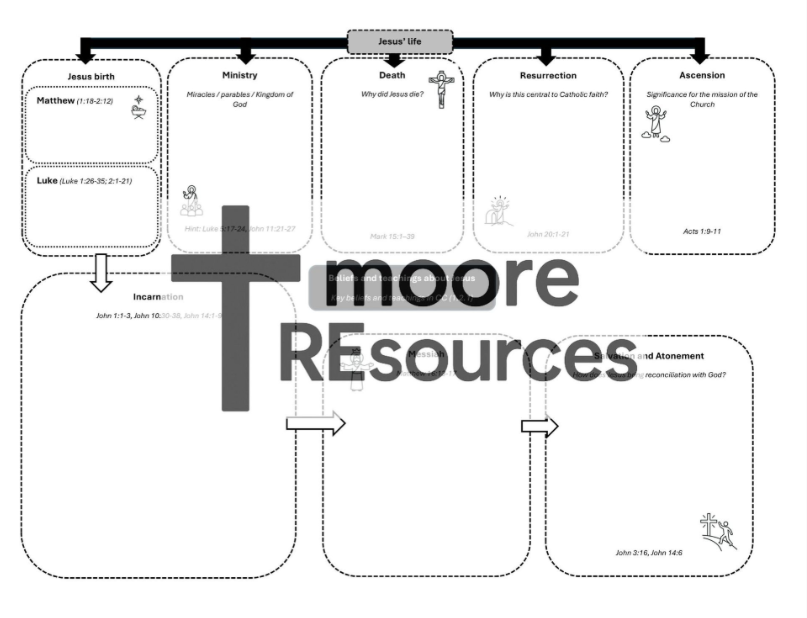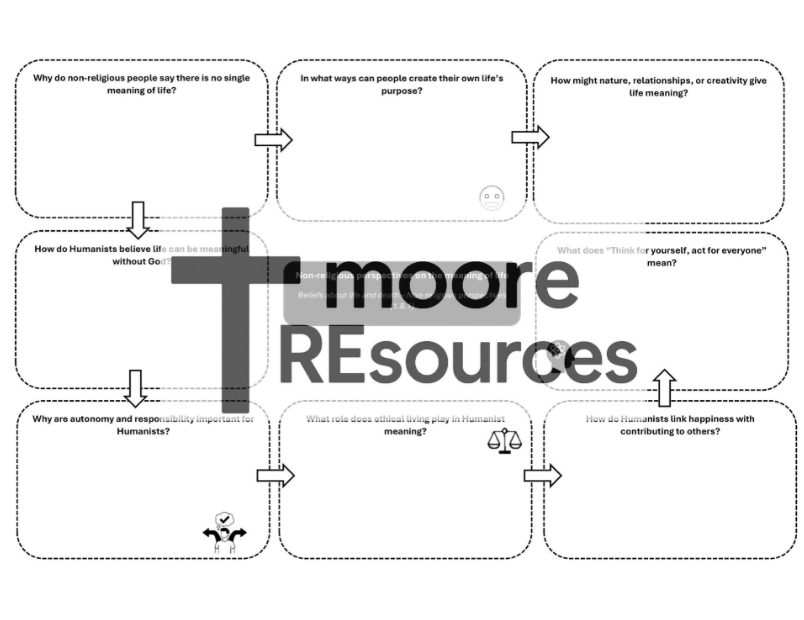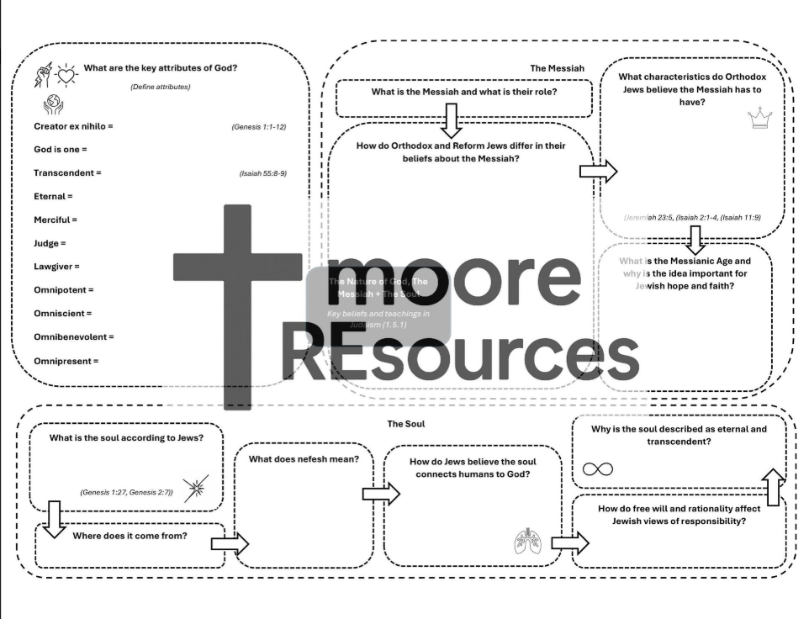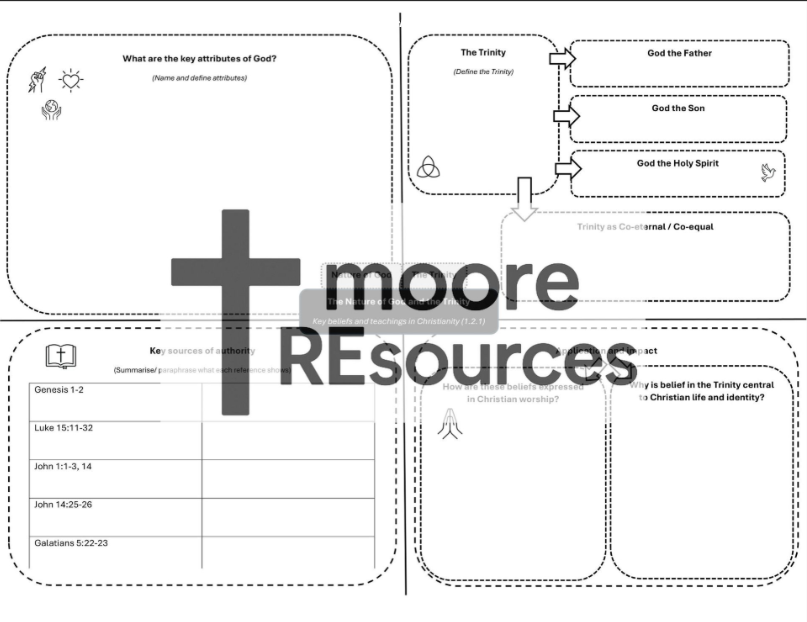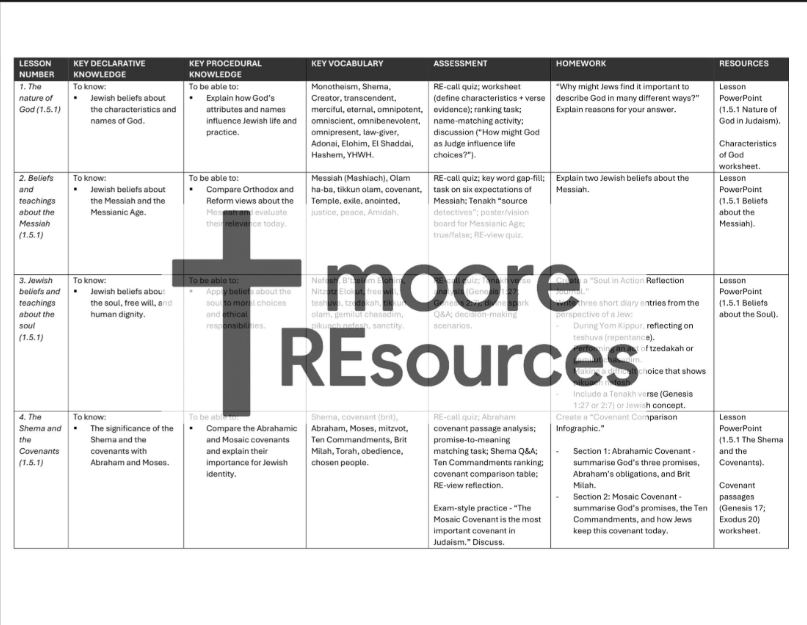 Image 1 of 2
Image 1 of 2

 Image 2 of 2
Image 2 of 2



1.91 Non-religious Perspectives on Identity, Belonging and Practices
Empower your students to explore the meaning of identity and community beyond religion with this engaging and reflective lesson for 1.9.1: Non-religious Perspectives on Identity, Belonging and Practices. Carefully aligned to the WJEC Religious Studies 2025 specification, this lesson examines how non-religious individuals create meaningful lives, build connections, and express belonging through shared values and collective action — making it highly relevant and inspiring for all learners.
Learners Will Understand:
Identity and Belonging Without Religion
The significance and value placed on personal identity and belonging outside of faith-based traditions.
The importance of personal autonomy, ethical living, and human connections in shaping non-religious identity.
Expressing Belonging and Shared Values
Participation in charities, community groups, and organisations that promote social justice, environmental sustainability, and other good causes.
The role of collective activities and shared missions in creating a strong sense of purpose and community for non-religious people.
Suitable for:
WJEC GCSE Religious Studies (from 2025)
KS4 PSHE and Citizenship modules
Ethics and philosophy crossover lessons
Reflection, enrichment, or revision sessions
Empower your students to explore the meaning of identity and community beyond religion with this engaging and reflective lesson for 1.9.1: Non-religious Perspectives on Identity, Belonging and Practices. Carefully aligned to the WJEC Religious Studies 2025 specification, this lesson examines how non-religious individuals create meaningful lives, build connections, and express belonging through shared values and collective action — making it highly relevant and inspiring for all learners.
Learners Will Understand:
Identity and Belonging Without Religion
The significance and value placed on personal identity and belonging outside of faith-based traditions.
The importance of personal autonomy, ethical living, and human connections in shaping non-religious identity.
Expressing Belonging and Shared Values
Participation in charities, community groups, and organisations that promote social justice, environmental sustainability, and other good causes.
The role of collective activities and shared missions in creating a strong sense of purpose and community for non-religious people.
Suitable for:
WJEC GCSE Religious Studies (from 2025)
KS4 PSHE and Citizenship modules
Ethics and philosophy crossover lessons
Reflection, enrichment, or revision sessions


